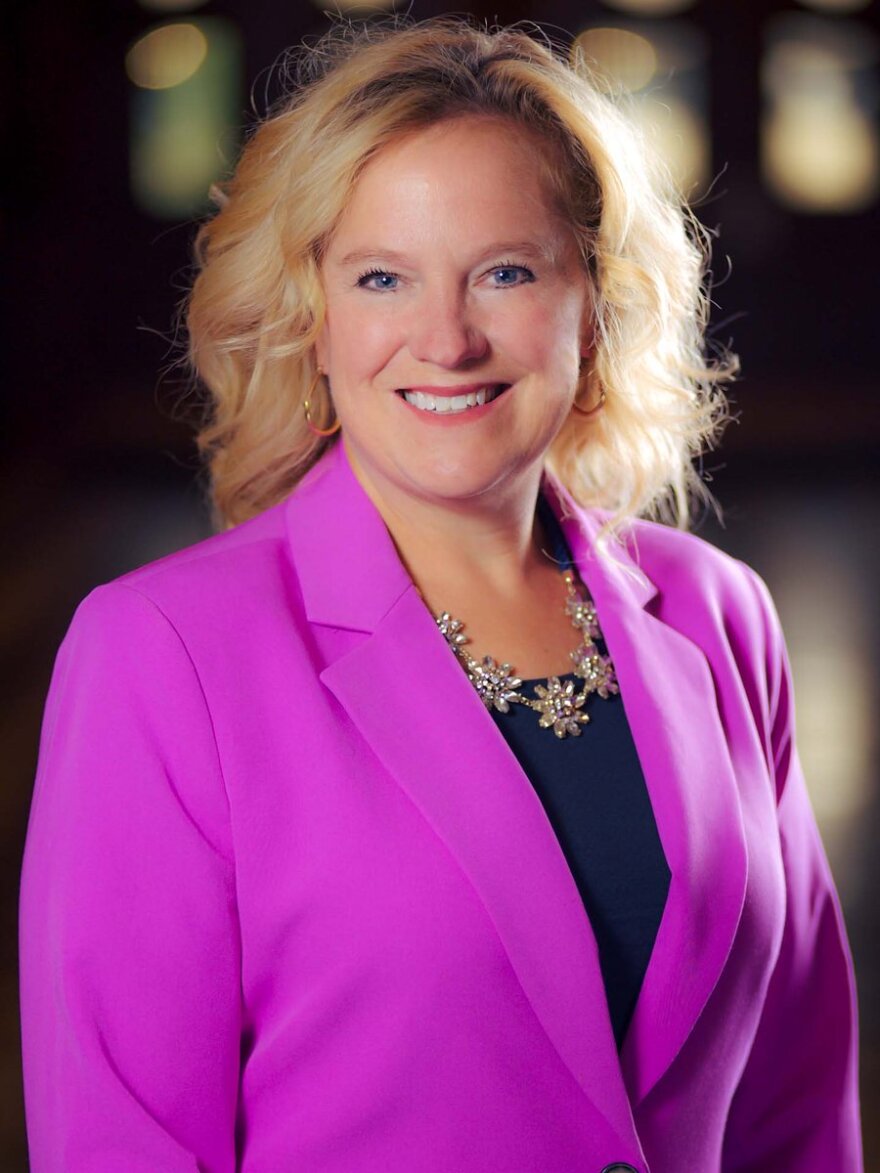Wyoming schools are looking at a big cut and calibration to the state's school funding model this year. Educators are worried about what this means for their students and instruction as lawmakers are considering the next steps.
Wyoming Public Radio's Catherine Wheeler spoke with State Superintendent of Public Instruction Jillian Balow about how this time the cuts will impact education in a big way.
Jillian Balow: I've been in Wyoming for my whole life and we've gone through booms and busts. And it seems like there was always this conception that whatever bust we were in, it would come back. And I think what we know today is that it's not going to come back and look the same. This is a really different kind of boom and bust cycle that we've never seen before. The misconception is that it's going to come back the way that it was. But we don't feel the deficit in education today because it's backfill by the good times that we've experienced as a state in the form of a rainy day account, and so we haven't had to feel the cuts of education. We haven't had to feel the $150 million deficit that exists because we don't have a coal industry like we used to. And those days are coming to an end. Our CREG report, if you look at that, you see just two biennium away, we are at a fiscal cliff in education where we will not be able to pull from the rainy day fund to fund education any longer. And so I feel like people think that's a lot farther off than it is. Our deficit in education is real. And we just don't feel it right now because it's backfilled by the rainy day account.
Catherine Wheeler: We've talked in the past about the differences between recalibration and reviewing the basket of goods, and you've said you'd really like lawmakers to evaluate the basket. What exactly do you think needs to be changed or adapted?
JB: When the basket of goods was codified in the 1990s in statute, it was intended for the basket of goods to be fluid and examined, just like the funding model has been every five years, maybe more often. I guess, in some certain ways, we've done that, as we've done standards reviews. Although that's rules, that's not statute. And really, the only substantive change to the basket of goods has been the addition of computer science in 2018. We know that education has evolved, has grown, has changed. But also part of the basket of goods is thinking about things like instructional time and the traditional credit hour. And those are all things that really need to be examined, not just by the legislature, but by the entire state of Wyoming. Is that the best way that we can deliver the basket of educational goods to every student across the state? Maybe it is, maybe it isn't. But until we have that review, and until we have that discussion, we don't really know. And all we've done is add to it, add to it, add to it. And I'm not saying that that means, that magically we should be telling kids, 'Oh, you don't need to know this anymore.' But again what's evolved? Or what should? Are we still prioritizing what we need to prioritize in our standards? Do we have too many? Is there another way to structure it? The basket of goods really should kind of coalesce around that work and make sure that statute reflects practice in our schools and the most relevant education that's available to students in Wyoming and that meets the needs of all learners.
CW: In speaking with some superintendents around the state, I've heard concerns about what the cuts will actually come down to, like extracurriculars or staff. Have you been thinking at all about how that could potentially be affected?
JB: Yeah, in some ways that already has been affected. Maybe just in small ways now. But definitely, I think about how important activities are to students, and that those may have less prominence in a scenario that we may be talking about statewide or at the local level in terms of funding. But in that same vein, I think about everything. I think about career and technical education. I think about AP courses. I think about opportunities that students have that aren't necessarily organized activities, but opportunities for additional support in or out of school. And I don't want to say that- I mean, please don't get me wrong, I'm not saying those are on the chopping block, or I don't support those, or I do support those. That's not what I'm saying. I'm just saying that those are all things that we need to discuss. But the truth is that when you're cutting $150 million a year from a budget, and that that number may be doubled within the next few years, depending on what happens with oil and gas, you have to have those discussions. And they're not fun. And I think it's vitally important that these decisions take place in boardrooms of locally elected officials.








